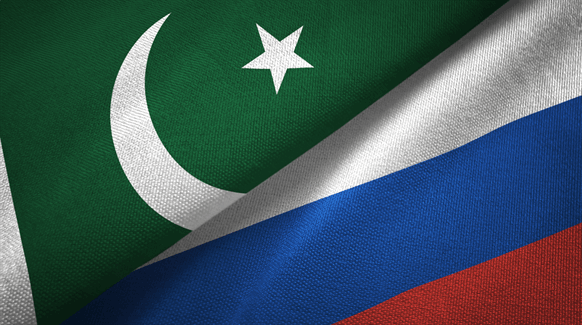Russia has delivered its second oil cargo to Pakistan, the Karachi Port Trust said, about two weeks after the first one arrived.
“Russian oil tanker CLYDE NOBLE docked at Karachi Port Oil Berth-3. It is the second vessel to bring Russian hard crude oil to Pakistan,” the port tweeted on Tuesday. The ship left Oman on Sunday and arrived in the city of Karachi on Tuesday, according to data from the MarineTraffic tracker.
The shipment was 56,000 tonnes, local newspaper Dawn reported citing the port. Dawn said Pakistan has now imported 100,000 tonnes of oil from Russia.
The South Asian country’s oil minister told Reuters Islamabad and Moscow had signed a deal for Pakistan to import up to 100,000 barrels per day of Russian crude at a discount. Imported crude would be refined domestically, Musadik Malik said, according to a Reuters report on April 20.
Officials have said importing Russian oil would lower fuel prices for consumers.
Announcing the arrival of first oil on June 11, Prime Minister Shehbaz Sharif said on Twitter: “We are moving step by step towards prosperity, economic growth and energy security and affordability.”
“The price of Russian oil that is being imported is at a significant discount to the price of crude that Pakistan is already importing,” Prime Minister’s Coordinator for Economy and Energy Bilal Azhar Kayani tweeted on June 13.
“The government aims for imports of discounted Russian crude to eventually constitute one-third of all oil imported by Pakistan,” he added.
Russian diversion
Amid Russian energy sanctions in response to its invasion of Ukraine, Pakistan’s ambassador to the US, Masood Khan, said the import has been planned in consultation with the US.
Russian fuel exports have moved away from their traditional European market since the imposition of sanctions, with Asia providing a respite. “Clear signs of trade diversion emerged after the invasion, with the value of Russian fuel exports to the EU falling by more than 40 percent last year, while exports to India and China rose,” the World Bank said in its World Outlook report released on June 6. .
Khan told a forum in Washington that the United States had told Pakistan that it could import Russian oil at a rate that did not exceed the price limits set by the Group of Seven (G7) and that Pakistan would abide by those price limits, he state broadcaster Radio Pakistan reported in June. 19. The G7, the European Union and Australia on February 4 agreed to price caps of up to $100 a barrel for Russia’s refined oil products.
On the news of the first delivery of Russian oil to Pakistan, US State Department spokesman Matthew Miller said at a press conference on June 13: “…we’ve been very clear that each country has to make their own choices based on their own circumstances in terms of energy imports”.
He added that the fact that Pakistan imports at a discounted price shows that price caps imposed by the US and its allies have “reduced the price of Russian oil so that Russian oil is sold well below market prices and , according to our estimates, have deprived the Russian government of about $100 billion in additional revenue that would have gone to finance its war machine in Ukraine.”
Meanwhile, Russian Ambassador Danila Ganich told Pakistani television channel Aaj News that Russia’s oil export to Pakistan was not a charity transaction but a “mutually beneficial” transaction.
“This is not charity,” he said. “So if we’re supplying, that means we’re making a profit.”
Payment in yuan
Pakistan’s ambassador to China, Moin ul Haque, told Chinese state media that payment for the first cargo of Russian oil had been agreed in Chinese yuan. Trade sanctions against Moscow have eroded the value of the dollar for Russia. Meanwhile, Pakistan’s foreign exchange reserves have been dwindling and the country had “an unsustainable current account deficit,” the International Monetary Fund said in its latest assessment for debt negotiations released on September 1, 2022 .
“China and Pakistan have a currency swap agreement to facilitate trade in local currencies. As bilateral trade between the two countries grows and new projects are launched under the CPEC [China Pakistan Economic Corridor]the two countries have agreed on the use of the yuan and the Pakistani rupee for financial transactions,” Haque told Global Times in an interview published on June 20.
To contact the author, please email jov.onsat@rigzone.com


